Has cheap fuel pulled the plug on electric vehicles?
EVs accounted for just 1.44% of U.S. auto sales in 2019.
Electric vehicles have always been a tough sell with Americans. They're more expensive, require a different mindset and the inability to quickly recharge on the road has led to severe range anxiety.
Demand for these battery-powered vehicles was weak even before the coronavirus pandemic shut down the world. With nearly 36 million Americans out of work and fuel prices averaging $1.85 a gallon nationally, what does the future look like for EVs?
"If someone was trying to engineer the downfall of the electric car movement, they did a good job," Karl Brauer, executive publisher of Kelley Blue Book and Autotrader, told ABC News. "I think the biggest impact from the pandemic is financial security or lack thereof. To grow EV sales you have to appeal to mainstream consumers. Every single American is thinking about finances and what risks they are willing to take, and that's a terribly negative impact for EV sales."
In 2019, EVs accounted for 1.44% of U.S. auto sales, according to data from Cox Automotive. When plug-in hybrids, or PHEVs, are included, market share ticks up to 1.94%. The average transaction price of an EV last year was $41,959 compared with $38,671 for SUVs and $29,795 for sedans.
"It's a fact of life -- EVs are more expensive than their gasoline-powered equivalents," Brauer noted. "The $7,500 credit from the federal government has moved the needle, but sales would be a fraction over the last 10 years if not for the credit."
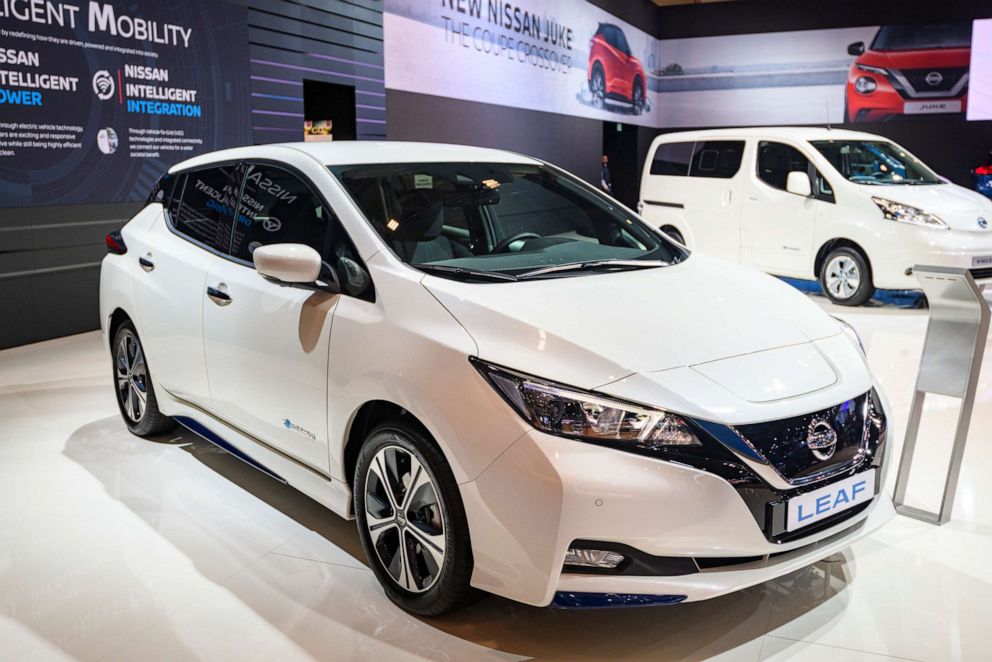
The annual cost of owning a new compact electric vehicle compared to its gas-powered peers over five years and 75,000 miles of driving is a difference of $600, according to new research from AAA.
Automakers and suppliers are expected to invest $225 billion in EV development and technology between 2019 and 2023, a "huge number," according to Mark Wakefield, managing director and head of AlixPartners' automotive practice in the Americas.
The substantial investment signals that carmakers will be reluctant to curtail their electrification programs despite economic headwinds.
Low fuel prices "won't kill sales of EVs but certainly dampens them," Wakefield told ABC News. "Gasoline prices are mainly the reason people buy EVs."
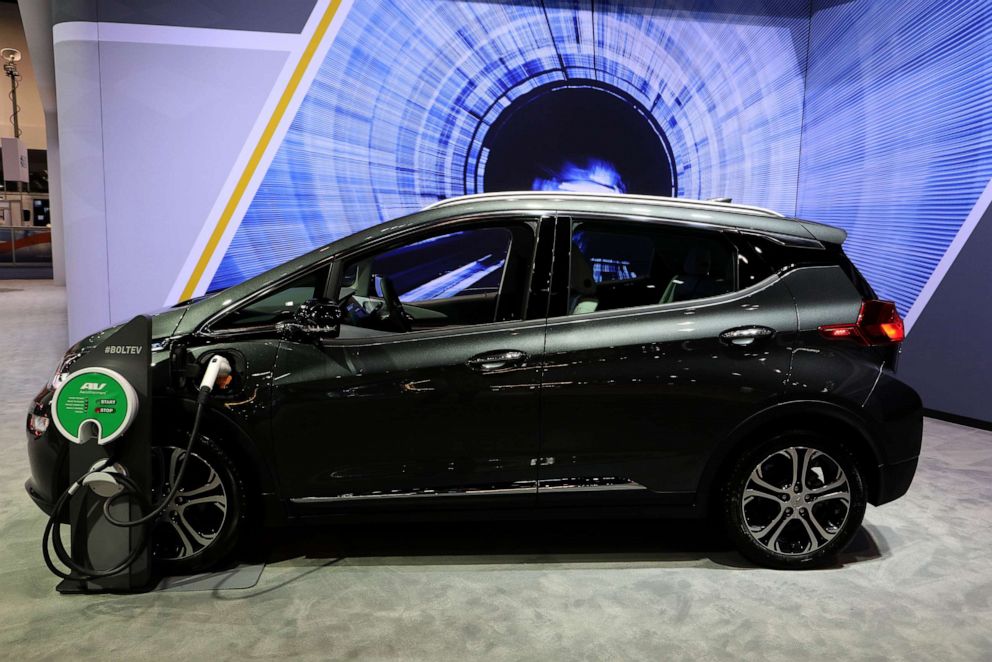
Eighteen new electric vehicles are expected to launch in North America this year, he noted, and the rollout will continue as automakers try to meet the stringent carbon emission standards set by lawmakers in Europe and China. The rush to manufacture EVs to avoid hefty fines puts automakers in a tight spot -- devoting valuable resources to vehicles that do not sell.
"Automakers are already facing a profit desert," Wakefield said, "and this year will be a down year for EVs. It's a big deal not to sell what you had planned."
John Voelcker, a longtime electric car journalist and industry analyst, argues that fuel prices are rarely the reason Americans buy zero-emissions vehicles. EVs can be found charging at homes belonging to early tech adopters and the wealthy, he said, and rising fuel prices do not necessarily correlate to increased demand.
"People only care about hybrids when gasoline gets expensive," he told ABC News. "The same does not apply to cars with plugs."
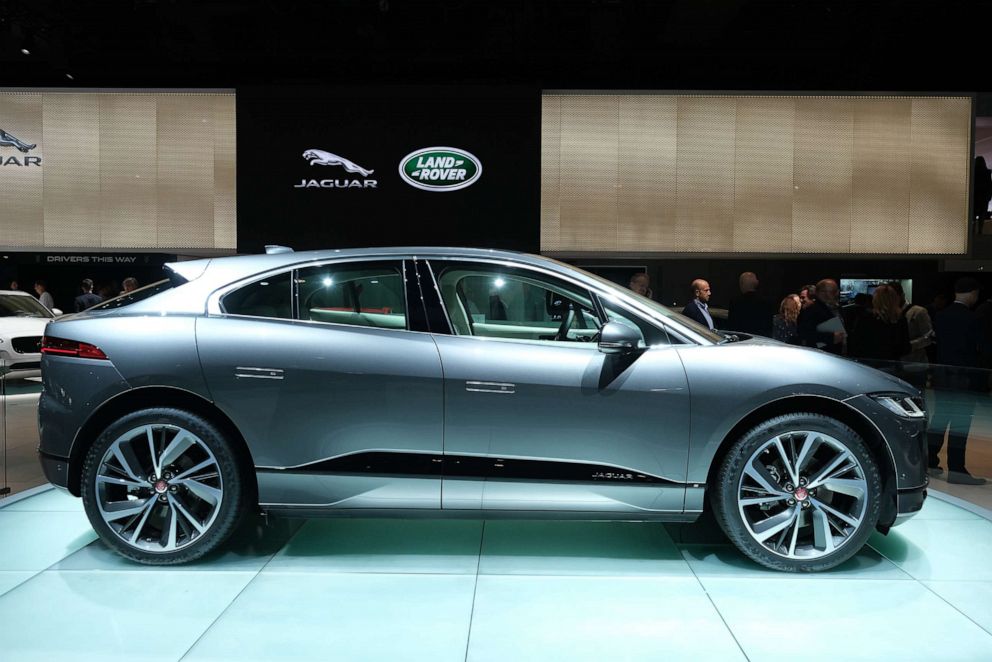
EVs will take off when automakers start producing battery-powered SUVs, crossovers and pickup trucks -- the conveyances Americans actually drive, he said -- and range tops 250 miles. For now, EV purchases will suffer along with the overall U.S. auto market, he said. Light-vehicle sales are expected to reach 620,000 units in April, a decline of 53% from 2019. In March, sales slumped 37% as states shuttered their economies to stop the spread of COVID-19.
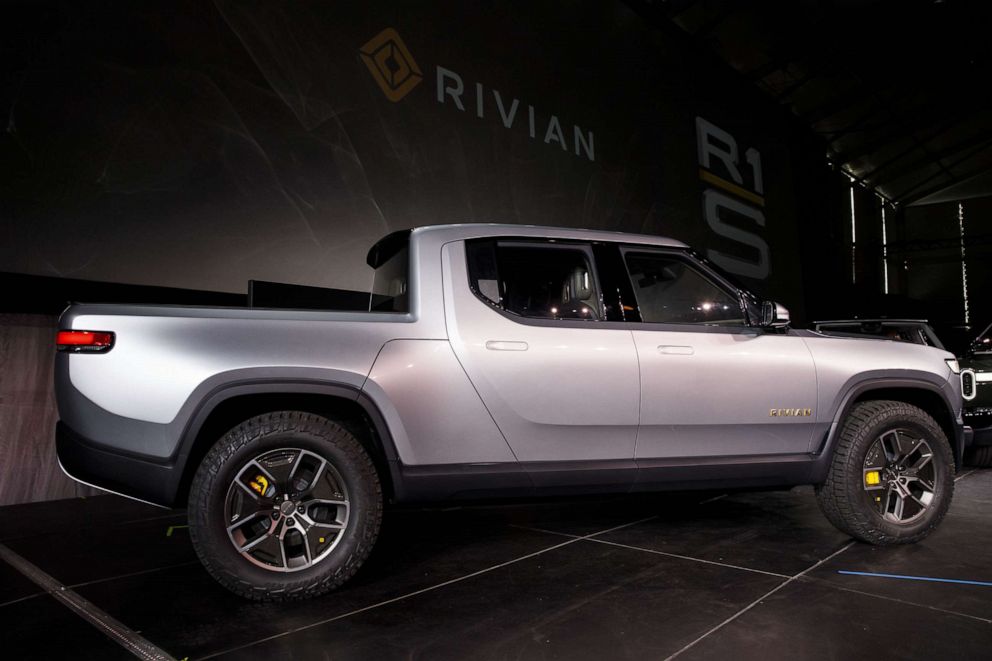
Voelcker said the current economic climate and uncertainty may convince Americans who can afford EVs to wait 12 to 18 months before purchasing one.
"They'll realize it may not be so smart to buy a new car," he said. "To have a recovery in autos you need supply and demand. [Sales of EVs] are not going to be hurt any more than vehicles that have combustion engines."
One of the most recent examples of the virus's startling blow on automakers was the decision late last month by Lincoln and Rivian, the Michigan-based EV startup, to cancel plans to build an all-new EV.
"Given the current environment, Lincoln and Rivian have decided not to pursue the development of a fully electric vehicle based on Rivian's skateboard platform," Ford, which owns luxury brand Lincoln, said in a statement. "Our strategic commitment to Lincoln, Rivian and electrification remains unchanged and Lincoln's future plans will include an all-electric vehicle consistent with its Quiet Flight DNA."
There are also rumors circulating that fourth-quarter deliveries of Ford's Mustang Mach-E all-electric SUV, which debuted in November, could be delayed until 2021.
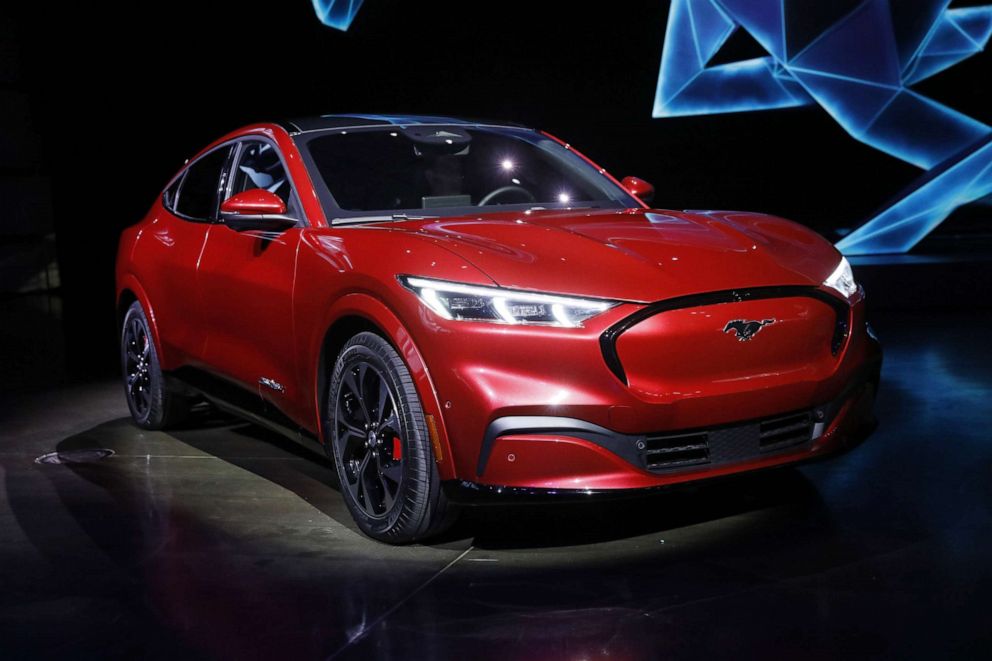
"Right now we're reviewing the launch dates of our new products and will share information at a later date," a Ford spokesperson told ABC News.
Volkswagen's plan to unveil the production version of its new ID.4 electric SUV will go on as planned this summer, according to a spokesperson for the German carmaker.
Tesla, the No. 1 seller of electric vehicles in the U.S., reopened its Fremont, California, plant in early May, defying stay-at-home orders in Alameda County. CEO Elon Musk filed a lawsuit against county officials and threatened to move the plant out of state, claiming that the orders were "fascist" and "breaking people's freedoms," and the forced closure of the plant in March disrupted the company's aggressive production plans.
Even if consumers' appetite for EVs changes in the near future, few automakers are in a position to take on industry leader Tesla. More than 192,200 Teslas were sold in the U.S. in 2019, with the company's Model 3 sedan the most popular -- and cheapest -- model preferred by buyers. Sales of Chevrolet's Bolt totaled 16,418 units in 2019, followed by Nissan's Leaf (12,365), Audi's e-tron (5,369), BMW's i3 (4,854) and Jaguar's I-PACE (2,594).
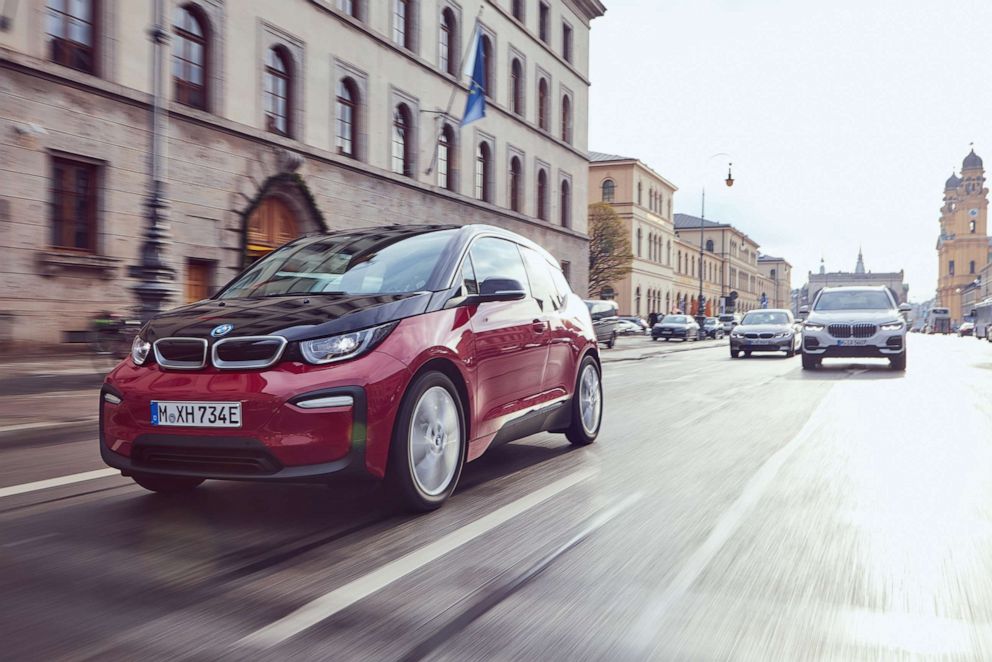
Gasoline demand in the U.S. has recently ticked up 17.2% from a low on March 26 as more states began to lift stay-at-home orders. Patrick De Haan, an energy analyst with Gas Buddy, expects the upward trend to continue barring a second wave of infections. EVs, however, have not affected fuel prices the same way.
"Right now we can't tell if any EVs are on the road," he told ABC News. "It's almost immeasurable the impact EVs have had on gasoline consumption."
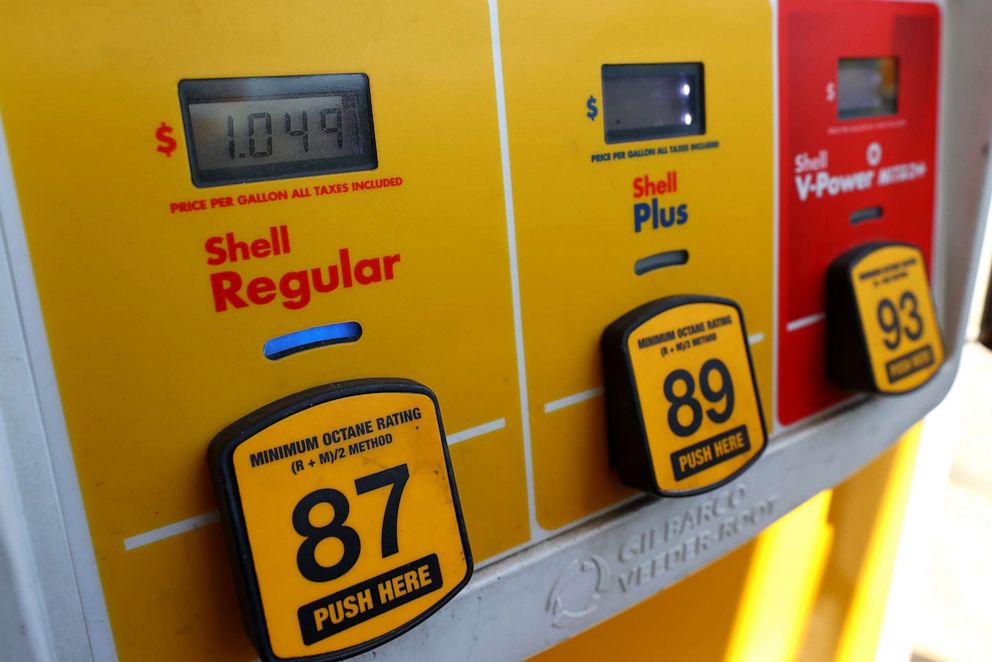
EVs are still the future regardless of where gasoline prices settle, argues Stephen Smith, executive director at the Southern Alliance for Clean Energy.
"I think the horse is out of the barn. The transition to electric is happening, but the speed will be impacted by the global economics," he told ABC News. "Range anxiety is decreasing because range itself is increasing. EVs will become the dominant vehicle in terms of sales in the next 10 years."
J.R. DeShazo, director of the Luskin Center for Innovation at the University of California at Los Angeles, said coronavirus could usher in new environmental policies around the country.
"A lot of states are talking about sustainable stimulus package incentives for vehicles that would include used and hybrid vehicles, charging equipment at home and at work and subsidies for clean transportation," he told ABC News. "In some ways the pandemic has made people appreciate life without all this car-created pollution."
He added, "It has changed how people think about EVs."




